In the UK, a certified marriage certificate translation is essential for recognizing foreign marital statuses within British legal affairs. This requires a professional translator endorsed by recognized bodies like the Institute of Translation and Interpreting (ITI), the Chartered Institute of Linguists (CIOL), or the Association of Translation Companies (ATC). The translation must be precise, with the translator providing a formal declaration of its accuracy and completeness, along with their qualifications. Subsequently, it may need to be endorsed by a UK-appointed official, such as a solicitor or notary public, to ensure its authenticity for legal recognition in the UK. This process is crucial for various applications, including visa processes, international divorces, and property transactions, where marital status proof is mandatory under British law, ensuring that the translated document holds the same legal standing as a UK-issued certificate.
When navigating the UK’s legal system, the authenticity of documents, particularly marriage certificates, is paramount. This article delves into the critical aspect of obtaining certified translations for such documents, ensuring they adhere to the stringent requirements set forth by UK law. We will explore the necessity of these translations, the authoritative bodies overseeing their certification, and the intricacies involved in maintaining legal validity for foreign marriage certificates. Whether it’s understanding the legal implications or choosing between manual and automated translation services, this guide aims to provide clarity and guidance for those requiring a certified marriage certificate translation within the UK’s legal framework.
- Understanding the Necessity of Certified Translations for Legal Documents in the UK
- The Role of Marriage Certificate Translation in UK Legal Procedures
- Recognising Authoritative Translation Bodies for Legal Documents in the UK
- The Legal Validity of Foreign Marriage Certificates in the UK
- Requirements for Certified Translation of Marriage Certificates in the UK
- How to Obtain a Certified Translation of a Marriage Certificate in the UK
- The Process of Certifying a Translation of a Marriage Certificate for UK Legal Use
- The Importance of Accuracy and Cultural Nuances in Certified Translations
- Verifying the Credentials of Translation Professionals for Legal Purposes
- Navigating the UK's Legal System with a Certified Translation of Marriage Certificate
Understanding the Necessity of Certified Translations for Legal Documents in the UK

When engaging with legal processes within the United Kingdom, the accuracy and authenticity of translated documents are paramount. A prime example is the requirement for certified marriage certificate translations in UK legal contexts. This necessity arises from the need to ensure that translated marital records are both precise and legally recognized. Certified translations provide a legal stamp, affirming that the translation is complete and true to the original document, which is crucial when such documents are presented to UK government bodies or used in court proceedings. The certified translator, typically a professional who is a member of an accredited translation body such as the Institute of Translation & Interpreting (ITI) or the Chartered Institute of Linguists (CIOL), attests to the accuracy of their work with a statement of accuracy and a signed certificate. This legal confirmation eliminates any ambiguity about the document’s content, ensuring that it meets the standards set by UK legislation. It is this official verification that distinguishes certified translations from other types of translation, making them indispensable in legal settings where the authenticity and integrity of information are non-negotiable.
The Role of Marriage Certificate Translation in UK Legal Procedures

When individuals from different national backgrounds tie the knot in the UK, their marriage certificate often reflects multiple languages and scripts. To align with the UK’s legal framework and ensure the document’s validity, a certified translation of the marriage certificate is indispensable. This translation serves as a bridge between the couple’s cultural heritage and the British legal system, facilitating clear understanding and recognition by authorities such as the Home Office or local councils. The process of obtaining a certified translation involves a qualified translator who fluently understands both the original language of the certificate and English, translating the document with precision to convey all relevant details accurately. This translation is then signed, stamped, and certified by a professional translation agency or a legal expert, confirming its authenticity and acceptance by UK institutions for various purposes, including family reunification, visa applications, and inheritance issues.
In the context of UK legal procedures, the marriage certificate translation must adhere to strict standards. It is not merely a linguistic exercise but a critical component that verifies the legality of marital status. The certified translator’s role extends beyond mere word-for-word translation; they must also interpret legal terms and ensure that all entries comply with UK regulations. This meticulous process underpins the integrity of personal documents in legal settings, safeguarding the rights and interests of individuals within the UK’s diverse societal fabric. For those navigating the requirements for a marriage certificate translation UK, it is imperative to engage with reputable translation services that are well-versed in both legal translations and the specific nuances of the UK’s legal system.
Recognising Authoritative Translation Bodies for Legal Documents in the UK
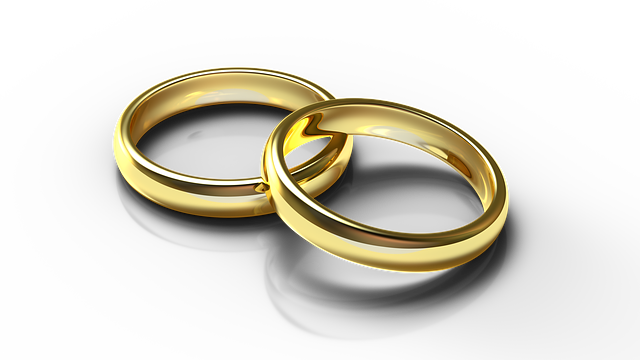
In the UK, legal documents such as marriage certificates are critical for various official proceedings. For foreign documents to be recognized within the British legal framework, they must undergo certified translation by authoritative bodies. The UK’s Office of the Immigration Services Commissioner (OISC) and the Association of Translation Companies (ATC) are among the regulatory entities that oversee professional translators who provide services for legal documents like marriage certificate translations UK-wide. These translators ensure that translations meet strict standards of accuracy and reliability, which is paramount in legal contexts where document authenticity is non-negotiable. When engaging a certified translator, it is imperative to verify their accreditation with these bodies or equivalent authoritative entities, as their certified translations will be the bridge between your original document and its acceptance by UK authorities. This process not only facilitates legal recognition but also upholds the integrity of legal transactions and personal affairs within the UK’s legal system.
Navigating the requisite for certified translation in the UK can be streamlined by identifying translators who are members of professional associations such as the Institute of Translation and Interpreting (ITI) or the Chartered Institute of Linguists (CIOL). These organisations ensure that their members adhere to a code of professional conduct, which includes providing accurate translations for sensitive documents like marriage certificates. Their certified translations are widely accepted by legal entities in the UK, ensuring that your foreign marriage certificate is given the same weight as if it were originally issued within the UK. It is through these established channels that individuals can ensure their legal documents receive the necessary validation for use within the British legal system.
The Legal Validity of Foreign Marriage Certificates in the UK
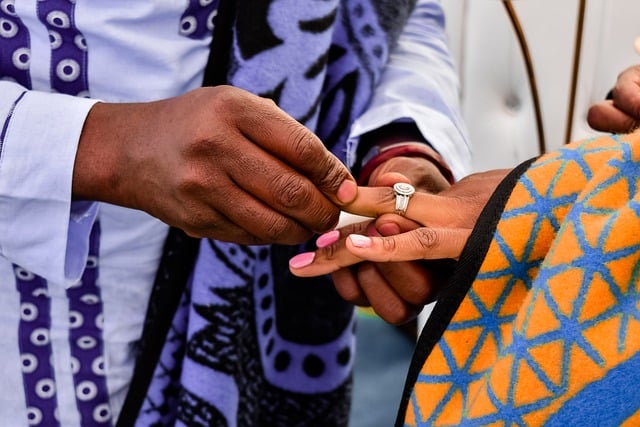
When foreign couples marry outside the UK and intend to recognise their marriage within British legal frameworks, the translation of their marriage certificate becomes a pivotal step. The UK’s legal system requires that all foreign documents, including marriage certificates, be translated by professional translators who are certified to provide such services. This certification ensures the accuracy and authenticity of the translation, making it legally admissible in UK proceedings. The process involves not just a word-for-word translation but also a confirmation of the document’s authenticity through an official stamp or seal that attests to the translator’s proficiency and the document’s true representation of the original. This certification is crucial for the marriage certificate translation UK to be accepted by UK authorities, legal bodies, and registration offices, thereby facilitating the couple’s integration into British life and their recognition as a married couple under UK law. It is imperative for individuals with foreign marriage certificates to engage certified translators who are accredited by relevant authorities, such as the Institute of Translation and Interpreting (ITI) or the Chartered Institute of Linguists (CIOL), to ensure their documents are legally valid in the UK.
Requirements for Certified Translation of Marriage Certificates in the UK
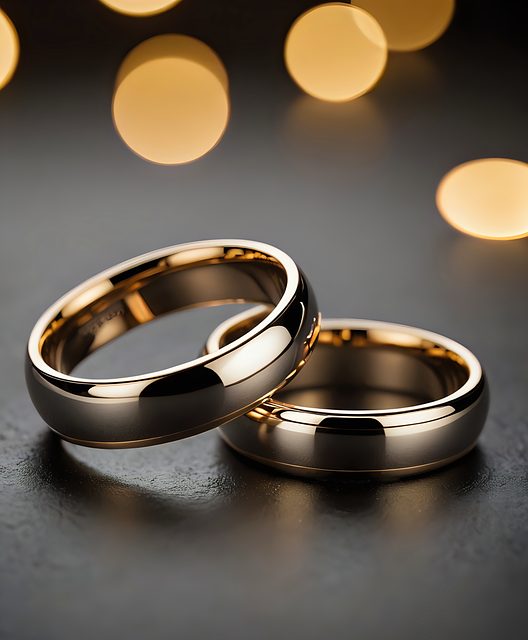
When individuals in the United Kingdom need to present their marriage certificates for legal purposes, a certified translation is often necessary, especially if the original document is in a language other than English. The UK’s legal system requires that all foreign documents, including marriage certificates, are accurately translated and accompanied by a statement from the translator affirming the translation’s authenticity. This is to ensure that the information provided on the certificate is both reliable and legally binding within the UK’s jurisdiction.
The process of obtaining a certified translation involves several steps. A professional translator, who is often a member of a relevant translation body such as the Institute of Translation and Interpreting (ITI) or the Association of Translators and Interpreters (ATI), must perform the translation. Upon completion, the translated document must be signed and dated by the translator. Additionally, the translator must include a statement confirming their qualifications and declaring that the translation is complete and accurate to the best of their knowledge and belief. The statement should also include a clear declaration that the translation is a true and exact representation of the original document. This certification allows UK authorities to accept the translated marriage certificate as if it were the original, facilitating legal procedures such as immigration, name changes, or international divorces without hindrance. It is imperative for individuals to engage with reputable translation services that specialize in legal translations to ensure compliance with UK regulations and to avoid any potential legal issues.
How to Obtain a Certified Translation of a Marriage Certificate in the UK
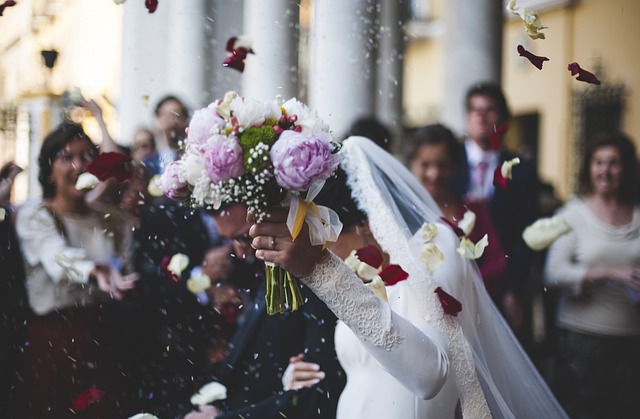
When the legality of a marriage certificate needs verification in the UK, obtaining a certified translation becomes imperative for various legal purposes. This is particularly relevant for individuals who got married abroad and require their marriage certificate to be recognized by UK authorities or for use in legal proceedings within the UK. To navigate this process efficiently, one must first identify a professional translator fluent in both languages of the original and translated documents. These translators should be proficient not only in language nuances but also well-versed in the specific requirements set forth by the UK’s Legalisation Office or the relevant embassy or consulate, depending on the country where the marriage took place.
Once a qualified translator is selected, they will provide a precise and accurate translation of the marriage certificate. The next critical step is to have this translated document certified. This certification process involves the translator signing a statement confirming that the translation is complete and accurate, and then having this statement stamped or sealed by an official body, such as the Institute of Translation and Interpreting (ITI) or the Chartered Institute of Linguists (CIOL). For additional assurance, the translated document can undergo further validation at the UK’s Legalisation Office or the corresponding foreign embassy/consulate in the UK. This ensures that the marriage certificate translation meets all legal requirements and is widely accepted by UK authorities for legal purposes.
The Process of Certifying a Translation of a Marriage Certificate for UK Legal Use
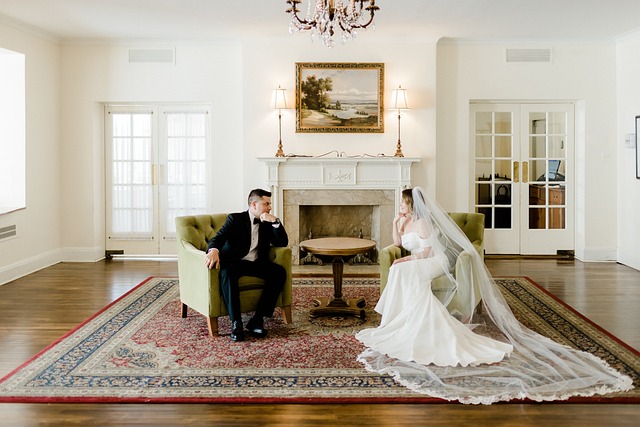
When individuals married abroad wish to use their marriage certificate in the UK for legal purposes, a certified translation is an indispensable requirement. The process of certifying a translation of a marriage certificate involves several meticulous steps to ensure its authenticity and legal acceptance within the UK’s regulatory framework. Initially, the translator must be a qualified professional who has been accredited by relevant authorities, such as the Institute of Translation and Interpreting (ITI) or the Chartered Institute of Linguists (CIOL). This ensures that the translation adheres to the highest standards of accuracy and completeness.
Upon completion, the translated marriage certificate must undergo a certification process. The translator will attach a statement to the translation, declaring that it is a true and faithful representation of the original document. This statement should include the translator’s full name, their signature, and their professional qualifications. Additionally, the translation must be accompanied by appropriate identification, verifying the translator’s authorization to undertake such translations. Finally, the entire translated document, along with the certification statement, should be stamped and signed by a UK-appointed official, such as a solicitor or notary public, to confirm its legitimacy for use in UK legal contexts. This official’s endorsement is crucial, as it attests to the translation’s reliability and its compliance with the UK’s legal standards.
The Importance of Accuracy and Cultural Nuances in Certified Translations

When engaging in legal processes within the UK, such as marriage certificate translation UK, certified translations play a pivotal role in ensuring that documents are recognized and accepted by authorities and institutions. The accuracy of translated documents is paramount; any discrepancies or errors can lead to delays, complications, or even the rejection of legal applications. Certified translators must possess a deep understanding of linguistic precision, adhering strictly to the original text while conveying its meaning faithfully. This is not merely a matter of word-for-word translation but also involves interpreting the context and intent behind the source material.
Cultural nuances are particularly significant when translating personal documents like marriage certificates. The UK’s diverse population means that legal documents may originate from various cultural backgrounds, each with its own customs and expressions. A certified translator must be adept at navigating these differences, ensuring that the translation does not misrepresent the original document’s meaning or intent. This requires a nuanced approach that takes into account both the literal and implied content of the text. By bridging language barriers while respecting cultural subtleties, certified translators facilitate the seamless integration of individuals into UK society, particularly in legal contexts where accuracy and cultural sensitivity are non-negotiable.
Verifying the Credentials of Translation Professionals for Legal Purposes
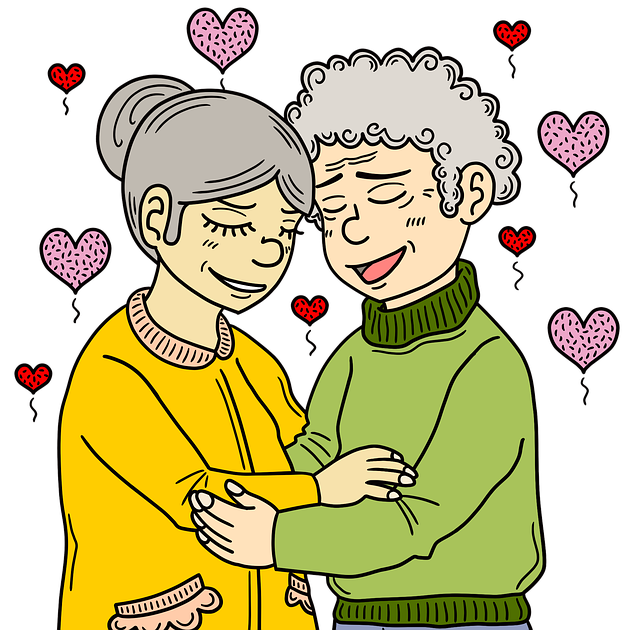
When engaging in legal proceedings or dealing with official documentation within the UK, the accuracy and legitimacy of translations are paramount. A prime example of this is when individuals require marriage certificate translation UK services. To ensure that a marriage certificate translation is both precise and legally sound, it is imperative to verify the credentials of the translation professional. The UK legal system demands translators who hold a Certified in Translation (CiT) qualification or equivalent, which signifies their competence in translating official documents. These professionals must also be registered with a relevant body, such as the Institute of Translation and Interpreting (ITI), the Chartered Institute of Linguists (CIOL), or the Association of Translation Companies (ATC). This registration ensures that they adhere to a strict code of professional conduct and maintain high standards of translation quality. Additionally, the translation should be accompanied by a statement of truth, declaring that it is a complete and accurate translation of the original document. This due diligence safeguards the legal validity of the translated marriage certificate, ensuring that it can be accepted by government bodies, legal entities, and other official institutions within the UK. It is through these rigorous checks that the integrity of translations for legal purposes is upheld in the UK, providing confidence to individuals navigating the legal system with documents from abroad.
Navigating the UK's Legal System with a Certified Translation of Marriage Certificate

In the context of legal proceedings within the United Kingdom, the authenticity and accuracy of documentation are paramount. A marriage certificate is no exception, particularly for individuals whose marital status is relevant to UK legal matters. For non-UK nationals or those married abroad, presenting a certified translation of their marriage certificate is often necessary to validate marital status in UK legal settings. This is where the service of a professional marriage certificate translation UK becomes crucial. A certified translator ensures that the translated document not only reflects the original content accurately but also carries the same legal weight as if it were issued in the UK. The certification typically includes a statement by the translator attesting to the accuracy and completeness of the translation, along with their official credentials and contact information. This level of scrutiny is essential for legal recognition and can be pivotal in processes ranging from visa applications to property transactions, where proof of marital status is required. Engaging a certified translator who is proficient in both languages involved and familiar with UK legal requirements is key to navigating these systems efficiently and without undue delay. It is a step that safeguards individuals’ rights and facilitates smoother interactions with government bodies, legal firms, and other official entities within the UK.
navigating the intricacies of UK legal processes, individuals must secure a certified marriage certificate translation to uphold legal validity. This article has elucidated the critical role such translations play within the British legal framework, emphasizing the necessity for accuracy and cultural sensitivity in these documents. By recognising authoritative translation bodies and understanding the stringent requirements set forth for these translations, individuals can ensure their marriage certificates, or other legal documents, are duly recognized by UK authorities. For those who require a certified translation of their marriage certificate, it is imperative to engage with professionals who possess the necessary credentials and expertise. Doing so not only facilitates legal compliance but also instills confidence in the authenticity of the translated document. With the guidance provided herein, individuals can confidently proceed through UK legal procedures with all the required translations, ensuring their personal and legal matters are rightfully addressed.
